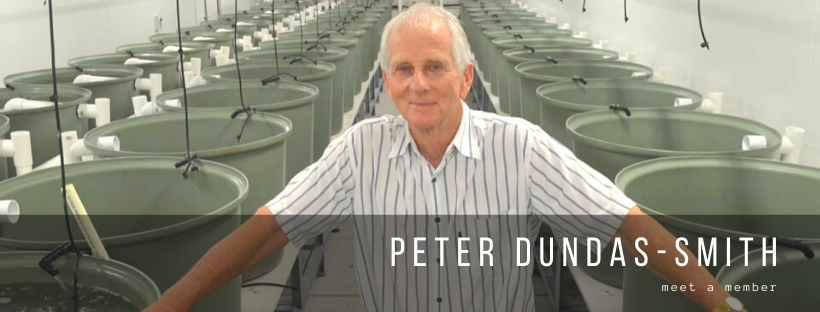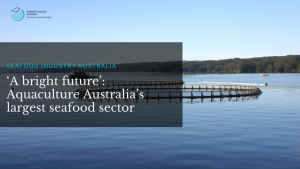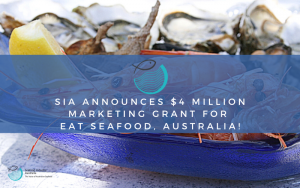
Meet a member – Peter Dundas-Smith
Peter Dundas-Smith, Chair of the NSW Fisheries Research Advisory Committee.
Peter was born in Sydney, moved to Murwillumbah in northern NSW as a child and again moved with his family to the Gold Coast where he attended school. After matriculating from Southport State High School in 1963, Peter joined the Air Force and served most of his 21 years as an air traffic controller at aerodromes in Australia and Malaysia.
“My Air Force career culminated in three years as the project manager for the construction of the Australian Defence Force Academy in Canberra. I left the Air Force to join Telecom Australia,” Peter said.
“My entry into the fishing and aquaculture industry followed in 1992 when I was appointed as the inaugural Executive Director of the Fisheries Research and Development Corporation; a position I enjoyed until 2005 when my wife Cherry and I decided that after 25 years it was time to move out of Canberra to retire in Nelson Bay north of Newcastle.
“It was the right move, at the right time for us, but it didn’t come with retirement. I loved the industry too much to give it away at that point.
“Consequently, I soon took on the role of Chair of the Co-operative Research Centre for Sustainable Aquaculture, and that was followed by Chair of the Australian Seafood Co-operative Research Centre.
“During the same time I took on other roles in the industry including Director of OceanWatch Australia and my current role as Chair of the NSW Fisheries Research Advisory Committee.
“I have been fortunate throughout my working life to have had jobs that are fulfilling, and have left me with a sense of achievement. With respect to fishing and aquaculture, and in particular research and development, I believe my greatest achievements lie in my early contributions towards changing the culture of fishers and farmers, research providers and fisheries managers regarding the need for research to be end-user driven and outcomes based; and making leadership a research priority for the industry.
“I get most work satisfaction out of working with people and particularly those at the coalface of industry. Fishers and farmers make the industry what it is; both for the good and bad.
“Consequently, one of my visions for the industry is for its fishers and farmers to be highly skilled and educated. There are still too many examples of fishers being skilled in the art of fishing but lacking in comprehensive understandings of their business and community environments.
“I congratulate the Fisheries Research and Development Corporation for continuing to invest in leadership programs over the last two decades. However, I believe the industry as a whole needs to invest more in the professional development of those on boats and farms who may never become industry leaders, but who nevertheless, need to understand, for example the fundamentals of fisheries management. In so saying, I acknowledge OceanWatch’s Master Fisherman’s Program and similar programs emerging in some jurisdictions.
“Over my 27 years working for the fishing and aquaculture industry I have been an advocate of strong peak bodies; but unfortunately, I’ve seen them come and go due to industry politics and fragile funding models. However, when Seafood Industry Australia was formed with its recommend funding base I hastened to join up thinking it provided the industry with its best opportunity to prosper in the decades to come.
“Therefore, as an unsolicited postscript to this story I plea with all industry participants to get behind SIA and to empower it to work in your best interests in the challenging years ahead”.




